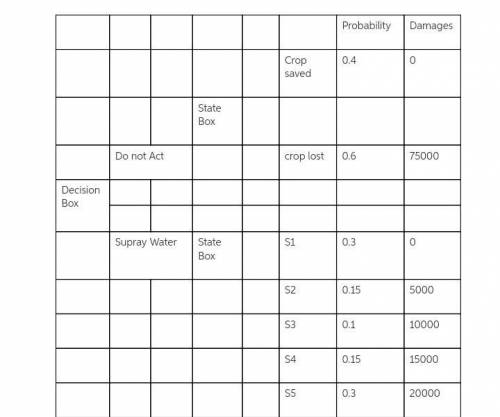A. Two alternatives
Explanation:Alternative one : not to do anything, and run the risk of losing entire crop worth of $75,000.
Alternative two : to insulate his crop by spraying water at cost of $20,000 and succeed in saving the crop with five possible outcomes as given in attached file.
Net result or expected loss for atternative one is = .40*0 + .6*75000 = $45,000
Net result or expected loss for alternative two is = Cost-20000 + expected loss = 20000 + .3*0 +.15*5000 + .10*1000 +.15*15000 + .30*20000 = 20000+10000 = $30,000
B. Expected loss is less in case of alternative two, therefore farmer is advised to go for spraying water.
C. Highest cost for insulating the crop is (45000 - 10000) = $35,000 (Differnce between the expected loss under the two options)
D. In case the probability of freezing is at the lowest level of .40, then loss under alternative one is = .4*75000 =$30,000 . With higher levels of probabilities the expected loss is bound to be more. Therefore the decision to go for spraying water holds good.
E. As explained earlier as long as cost of insulation is less than the difference between the expected losses between options, it is recommended to go for spraying water.
